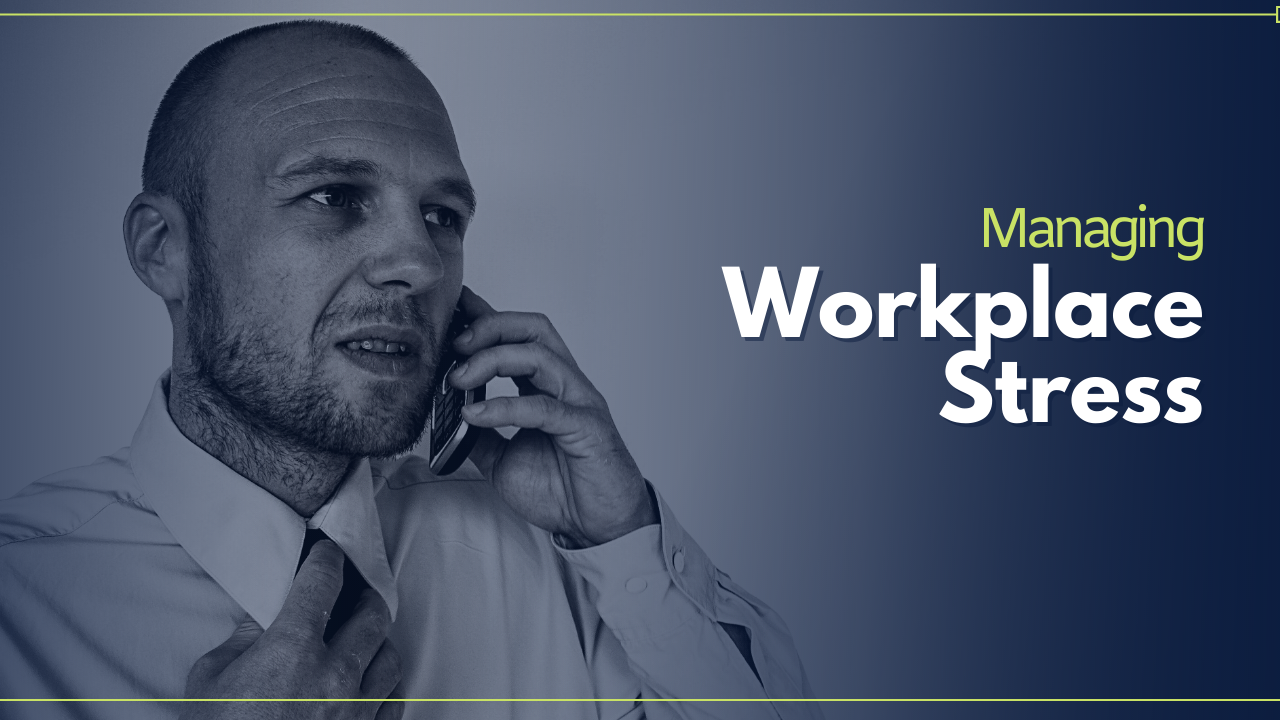- Stress is the health epidemic of the 21st Century.
- Stress can lead to feelings of burnout and anxiety, and it has also been associated with high blood pressure, insomnia, and a weakened immune system.
- Some strategies to better cope with and reduce stress include deep breathing, eating a healthy diet, and creating a third space where you can reset.
Back in 2016, the World Health Organization dubbed stress as the “health epidemic of the 21st Century”. This year, the WHO recognized burnout–which is defined as a syndrome resulting from chronic workplace stress– as an occupational phenomenon.
For its part, the American Institute of Stress claims that “numerous surveys and studies confirm that occupational pressures and fears are far and away the leading source of stress for American adults and that these have steadily increased over the past few decades.”
Stress has become a constant factor in the modern workforce
- 40% of workers report their job was very or extremely stressful
- 25% view their jobs as the number one stressor in their lives
- 75% of employees believe that workers have more on-the-job stress than a generation ago
- 29% of workers feel quite a bit or extremely stressed at work
- 26% of workers said they are often or very often burned out or stressed by their work
- Job stress is more strongly associated with health complaints than financial or family problems
- 80% of workers feel stress on the job
- Nearly half of workers say they need help in learning how to manage stress
- 25% have felt like screaming or shouting because of job stress
- 10% of workers are concerned about an individual at work they fear could become violent
- 14% of respondents had felt like striking a coworker in the past year, but didn’t
*Statistics taken from STRESS…At Work NIOSH Report and Attitudes in the American Workplace VII report.
Why Manage Workplace Stress
Not only can chronic workplace stress lead to burnout, it can have other detrimental effects on a person’s physical and mental wellbeing. Stress can lead to burnout, which can lead to anxiety and depression. Studies have also found that our immune system’s ability to fight off antigens is reduced when we are stressed. This means that we are more likely to get sick when we are stressed.
Stress, particularly long-term unmanaged stress, has been associated with the following:
- Anxiety
- Insomnia
- Muscle pain
- High blood pressure
- Heart disease
- Weakened immune system
- Depression
- Obesity
- Headaches
- Chest pain
- Fatigue
- High blood sugar
- Forgetfulness
- Anxiety
- Restlessness
- Anger (which can transition into violent thoughts and behaviors)
- Mood swings
- Inability to focus or think clearly.
Stress affects a person’s and company’s overall performance. Due to the above feelings and/or conditions, productivity levels are reduced while absenteeism and presenteeism levels increase. Reduced productivity output is associated with reduced economic performance.
Strategies to Cope with Stress
While there are many things an employer can do to help prevent and reduce stress levels in the workplace, there are several strategies that workers can implement to better cope with stress.
1. Deep Breathing
Deep breathing is a technique that can be used to reduce stress. It is also known as belly breathing, diaphragmatic breathing, and abdominal breathing. This technique helps relax tense muscles and lower blood pressure. While it is recommended that people practice deep breathing for at least 15 to 20 minutes, during the workday, if you’re feeling stressed, simply taking a few, mindful deep breaths can help you relax and better focus.
2. Create a third space
More often than not, workplace stress doesn’t just affect us in the workplace, but we tend to bring it home with us. Performance consultant Adam Fraser developed a technique to help people stop bringing home their bad days by creating a third space where they can reflect about their work day and reset before they get home. According to Fraser, the third space can be the drive home, the gym, the bus or train ride, etc. Once you’re in your third space, Fraser recommends that you reflect on your day, rest by doing something that makes you present (exercise, meditation), and reset yourself prior to going home. You can read more about this technique here.
3. Step outside
Sometimes, simply going outside and getting fresh air is all we need to relax and focus. Not only does going outside help us feel refreshed, but if it’s nice and sunny outside, it can also help elevate your feel-good hormones (the sun does this). A change of scenery and connecting with nature can help you recharge, relax, and unwind. Even if your workplace doesn’t have a terrace or garden, sometimes simply stepping outside and taking in the sun, sounds, and smells can help you better cope with stress and anxiety.
4. Eat healthful, balanced meals
We are what we eat. Eating a balanced diet can help you feel better and it can help control your mood and emotions. Experts recommend you reduce caffeine and sugar intake, and instead aim to eat healthy fats, protein, vegetables, fruits, and whole grains. Not only will eating a healthy diet help you better cope with stress, but it can also help you get a good night’s sleep (getting enough quality sleep is also key to reducing and coping with stress).
Suggested Reading: “The Link between Food, Mood, and Productivity”
5. Talk about It
If something is bothering you, talk about it. Talk to coworkers, to your supervisor, to friends, to family, or to your therapist. You can even talk to yourself. Talking to someone about our problems can help put everything in perspective; there’s something cathartic to saying things out loud and letting them out of our heads that can better equip us to deal with problems.















